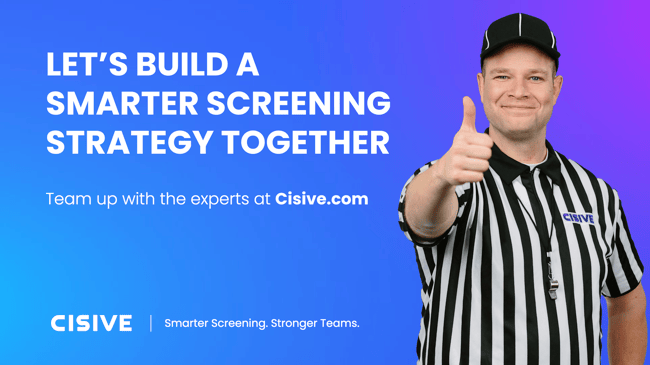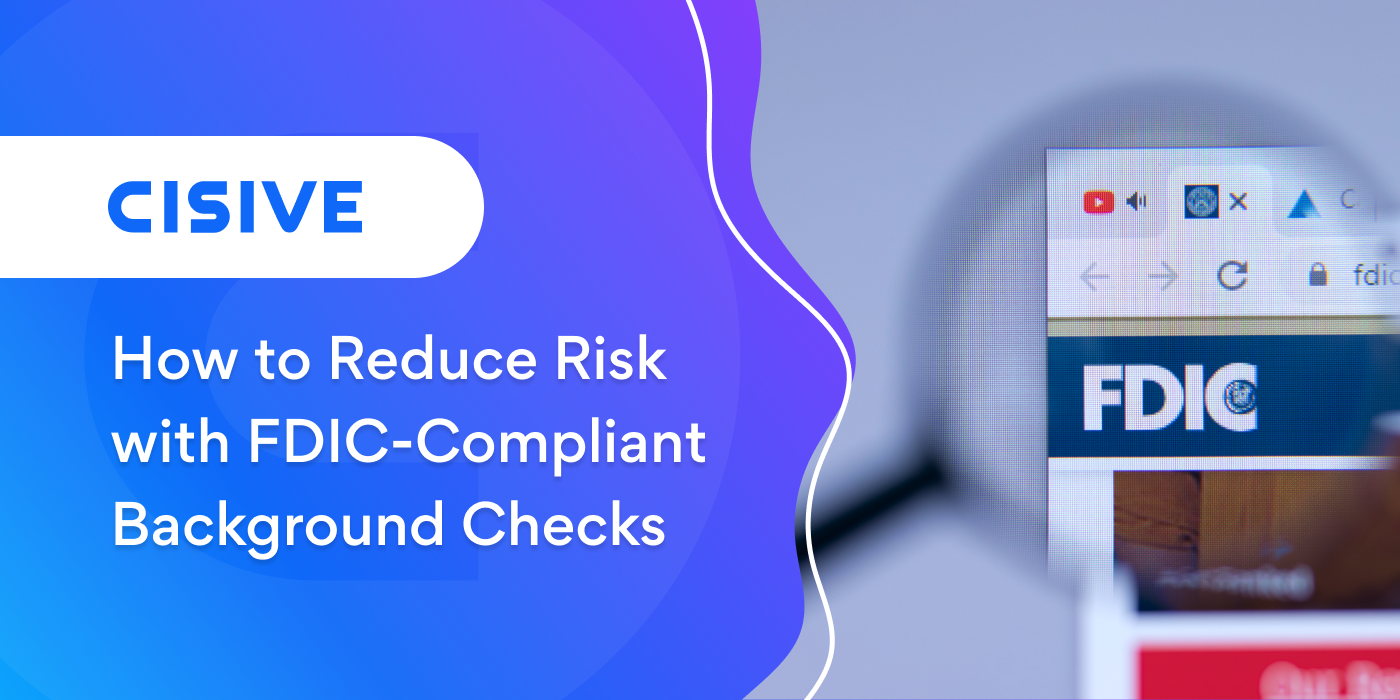The Federal Deposit Insurance Corporation (FDIC) is an independent agency created by the Banking Act of 1933 to maintain stability and public confidence in the United States’ banking system. It insures deposits in U.S. savings and commercial banks. It also plays a role in ensuring the people working for those banks are fully qualified for the job, and have been screened appropriately for common risks.
The FDIC has provided guidance on the most effective pre-employment screening process for financial institutions to follow, including fingerprinting for all people subject to FDIC background checks. This guidance stems from Section 19 of the Federal Deposit Insurance Act (FDI Act), which prohibits certain people from employment at an FDIC-affiliated institution (including consultants in some instances).
It bars “any person who has been convicted of any criminal offense involving dishonesty or a breach of trust or money laundering, or has agreed to enter into a pretrial diversion or similar program in connection with a prosecution” from being involved with an FDIC-insured institution. There are exceptions, including offenses that have been expunged or sealed.
The FDIC directs financial institutions to have a pre-employment screening program in place that would alert the institution to any of the concerning behaviors outlined above.
Key Takeaways
-
-
-
-
Section 19 of the FDI Act prohibits individuals with convictions involving dishonesty, breach of trust, or money laundering from working at FDIC-insured institutions, though there are specific exceptions.
-
Non-compliance has severe consequences, including fines up to $1 million per day, imprisonment, negligent hiring liability, and reputational damage.
-
The Fair Hiring in Banking Act (2022) significantly amended Section 19, narrowing restrictions by allowing exceptions for older offenses, youthful offenses, de minimus infractions, and expunged/sealed cases.
-
FDIC-compliant checks protect trust in the U.S. banking system while reducing risks of embezzlement, identity theft, or regulatory penalties.
-
Cisive provides comprehensive solutions (fingerprinting, FAST, SRO checks, FFIEC checks, and FINRA Broker Sanctions searches) tailored for financial services to help institutions remain compliant and safeguard assets.
|
|
Table of Contents
- Why are FDIC-compliant background checks important?
- How has FDIC guidance changed in recent years?
- Cisive Serves Financial Services
Why are FDIC-compliant background checks important?
The FDIC’s background screening guidelines are meant to bolster public trust in the U.S. financial system and to protect financial institutions by minimizing their exposure to risk.
Without a thorough background screening policy, organizations may face consequences:
-
- Knowingly violating Section 19 can result in up to $1,000,000 for each day of violation, or imprisonment up to 5 years, or both,
- Inherent risk by giving potentially untrustworthy employees access to sensitive information, subjecting clients to identity theft, or the organization to embezzlement,
- Negligent hiring liability in the event an employee commits a harmful crime, and the organization is found to have not thoroughly vetted the employee,
- Placing the workplace and clients at risk, and
- Loss of reputation: “It takes 20 years to build a reputation and five minutes to ruin it.” – Warren Buffett

How has FDIC guidance changed in recent years?
In 2022, the James M. Inhofe National Defense Authorization Act for Fiscal Year 2023 (NDAA) was signed into law. The NDAA contained the Fair Hiring in Banking Act, which amended Section 19 of the FDI Act.
Highlights:
-
- Offenses previously covered by Section 19 are no longer covered if:
- It’s been at least seven years since the offense was committed, or
- It’s been five years since a term of incarceration for the offense has been completed, or
- If the person was 21 or younger when they committed the offense, if it’s been more than 30 months since sentencing for the offense.
- A de minimus (minor) offense may be exempt if it was punishable by a term of three years incarceration or less.
- De minimus insufficient fund check offenses may be exempt if the amount totals do not exceed $2,000.
- The FDIC may make exceptions for de minimus offenses if it’s been a year since conviction/program entry for the offense.
- The Act codifies offenses that have been expunged, sealed, or dismissed are not bound by Section 19.
- “Criminal offense involving dishonesty” no longer applies to misdemeanor offenses committed at least a year before the date of application (excluding any period of incarceration), or to possession of controlled substances.
Cisive Serves Financial Services
Our solutions go beyond compliance by helping financial institutions build stronger hiring processes. Cisive offers a full suite of solutions for your FDIC-compliant financial services background checks, including:
-
- Fingerprinting: Including FBI Channeling, FINRA , NMLS, Secure Web Fingerprint Transmission (SWFT), and Rap Back
- Financial Anomalies Search Technology (FAST): Developed and provided exclusively by Cisive, FAST provides compliance officers or recruiters a means to match regulated candidates’ self-disclosures.
- Self-regulation Organizations Checks (SRO): This is a comprehensive search of over 70 financial services regulatory databases, including state securities commissions, SEC, various FINRA industry checks, NYSE, NASDAQ, CBOE, BATS, and others.
- Federal Financial Institution Examination Council (FFIEC) Check: This review includes a search of the Board of Governors of the Federal Reserve System (FRB), Federal Deposit Insurance Corporation (FDIC), National Credit Union Administration (NCUA), and Office of the Comptroller of the Currency (OCC).
- FINRA Broker Sanctions Search: Conducted to determine if there are any disciplinary actions against individuals or firms as reported to FINRA by several other regulatory organizations, as well as actions instituted by the FINRA organization.
Cisive’s foundation is in background screening for our nation’s most highly regulated industries, including financial services, healthcare, and transportation. Speak with a background screening pro today to ensure your hiring program is aligned with FDIC guidelines and ready for future changes.


%20-%20Blog%20Post.png?height=200&name=BLOG_%20Financial%20Services%20Monitoring%20(FAST)%20-%20Blog%20Post.png)

%20-%20Blog%20Post.png?height=200&name=BLOG_%20Financial%20Services%20Monitoring%20(FAST)%20-%20Blog%20Post.png)

